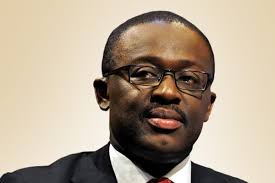The Federal Government has moved to calm tensions with the Nigeria Labour Congress (NLC) by appointing Mr. Opeyemi Agbaje as the new Chairman of the Governing Board of the National Pension Commission (PenCom). The appointment followed mounting pressure from the labour union, which had issued a strike threat over the non-constitution of the board.
The news of Agbaje’s appointment was confirmed by reliable labour sources and industry officials. According to them, the decision came after the Central Working Committee of the NLC gave the government a seven-day ultimatum on August 13, 2025, to constitute the PenCom Governing Board in line with the Pension Reform Act of 2014. The union also demanded that PenCom provide a full status report of all pension funds within the same period.
The Pension Reform Act stipulates the establishment of a 16-member board. The law requires the President to appoint a Chairman, a Director-General, and four full-time commissioners, subject to Senate confirmation. The remaining ten members are representatives of labour, pensioners, employers, and regulatory stakeholders, including the Nigeria Labour Congress (NLC), the Trade Union Congress (TUC), the Nigeria Union of Pensioners (NUP), and the Nigeria Employers’ Consultative Association (NECA). However, since President Bola Tinubu dissolved federal boards in June 2023, PenCom has been without a full board, a situation the NLC described as unlawful and harmful to pension fund transparency.
The new appointee, Mr. Opeyemi Agbaje, is a seasoned professional with experience in business strategy and public policy. He is the Chief Executive Officer of RTC Advisory Services Ltd, a strategy and business advisory firm with two units: RTC Strategy and Advisory, and RTC Policy. Agbaje holds a Master’s degree in Law from the University of Lagos and earned an MBA from IESE Business School in Spain in 1997. He also has experience in the banking sector and previously served on the board of the Lagos State Security Trust Fund for two terms, between 2011 and 2019.
Despite the development, uncertainty still surrounds the official status of the appointment. When contacted, the spokesman for PenCom, Mr. Ibrahim Buwal, said the commission had not received official confirmation from the presidency regarding Agbaje’s appointment. He explained that until the Presidency issues a formal announcement, PenCom would treat the news as unconfirmed.
The NLC had earlier accused the Federal Government of undermining workers’ social security by leaving the commission without a board. Labour leaders argued that the absence of the board had created a governance vacuum that exposed workers’ pension funds to unilateral government control and possible mismanagement. The union stressed that pension funds are sacrosanct and should not be subjected to political interference.
The ultimatum by the NLC was issued during a period of growing friction between labour unions and the government. Apart from the pension fund issue, the NLC is also battling the Federal Government over the removal of fuel subsidy, the increase in electricity tariffs, and the new minimum wage negotiations. Many observers believe the appointment of Agbaje is a strategic move by President Tinubu’s administration to avoid another nationwide strike.
Labour experts say the appointment could ease tensions if it is followed by full reconstitution of the board. Mr. Musa Lawal, a policy analyst, said, “Appointing a chairman is only one part. The other members representing workers, pensioners, and employers must also be appointed for the board to be functional. Anything short of that will not satisfy labour.”
The pension industry itself has faced growing challenges in recent years. In July 2025, PenCom blacklisted seven mortgage banks over breaches in housing loan regulations. Analysts say strengthening the board could help restore confidence in the sector and improve accountability in the management of pension assets.
As of 2024, pension assets under management were estimated at over N17 trillion, making the sector one of the largest pools of domestic capital in Nigeria. Labour unions insist that such a huge fund cannot be left without a strong governance structure.
With the latest move, all eyes are now on the Presidency to make a formal announcement and on the National Assembly to confirm the appointment. For workers, pensioners, and stakeholders in the industry, the hope is that the reconstitution of the board will bring stability, transparency, and renewed confidence in pension fund management.
